Time in Bali takes center stage in this exploration of the island’s unique relationship with time. From sacred rituals to traditional ceremonies, Bali’s time-based experiences offer a glimpse into a world where time is not merely a measure but an integral part of life.
Bali’s rich history has shaped its perception of time, leaving an imprint on its cultural heritage and daily rhythms. This guide delves into the island’s past, present, and future, unraveling the threads that connect time, culture, and tradition in Bali.
Time-Related Activities in Bali
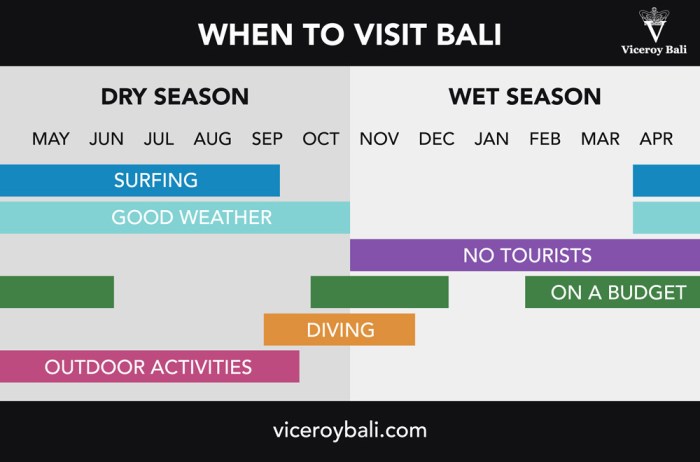
Bali’s rich cultural heritage and spiritual traditions offer a plethora of time-related activities that provide a glimpse into the island’s unique relationship with time. From sunrise rituals to traditional ceremonies, these experiences allow visitors to connect with the rhythms of Balinese life and gain a deeper understanding of their culture.
Time-based activities in Bali are deeply rooted in the island’s Hindu beliefs and customs. The Balinese concept of time is cyclical, with each day divided into specific periods governed by different deities. These periods are marked by various rituals and ceremonies that honor the gods and maintain harmony in the universe.
Sunrise Rituals
Sunrise is a sacred time in Bali, and witnessing the first rays of dawn is considered auspicious. Many temples and beaches offer sunrise ceremonies that allow visitors to experience the beauty of the sunrise while connecting with the divine. These ceremonies often involve offerings to the gods, prayers, and chanting.
- Pura Luhur Uluwatu: Perched on a cliff overlooking the Indian Ocean, this temple offers stunning sunrise views. The ceremony here begins at 6:00 AM and includes traditional dance performances.
- Tanah Lot Temple: Located on a small offshore islet, Tanah Lot is a popular spot for sunrise ceremonies. The temple is dedicated to the sea god, and the ceremony involves offerings and prayers for safety and prosperity.
Traditional Ceremonies
Traditional ceremonies are an integral part of Balinese life and provide a glimpse into the island’s rich cultural heritage. These ceremonies are held on specific days according to the Balinese calendar and often involve elaborate rituals, music, and dance.
- Odalan: The most important ceremony in the Balinese calendar, Odalan celebrates the anniversary of a temple’s consecration. The ceremony lasts for several days and involves offerings, prayers, and a series of traditional performances.
- Melasti: Held before Nyepi (Balinese New Year), Melasti is a purification ceremony that involves carrying sacred objects from temples to the ocean for cleansing. The ceremony is accompanied by music, dance, and colorful processions.
Cultural Events
Bali is home to a vibrant arts and culture scene, and there are numerous cultural events held throughout the year. These events showcase the island’s traditional music, dance, theater, and crafts.
- Bali Arts Festival: Held annually in June and July, the Bali Arts Festival is a month-long celebration of Balinese culture. The festival features performances by traditional dance and music groups, as well as workshops, exhibitions, and other cultural events.
- Sanur Village Festival: Held in August, the Sanur Village Festival is a cultural event that showcases the traditions of the Sanur community. The festival features traditional dance performances, music, and food stalls.
Historical Timelines of Bali: Time In Bali
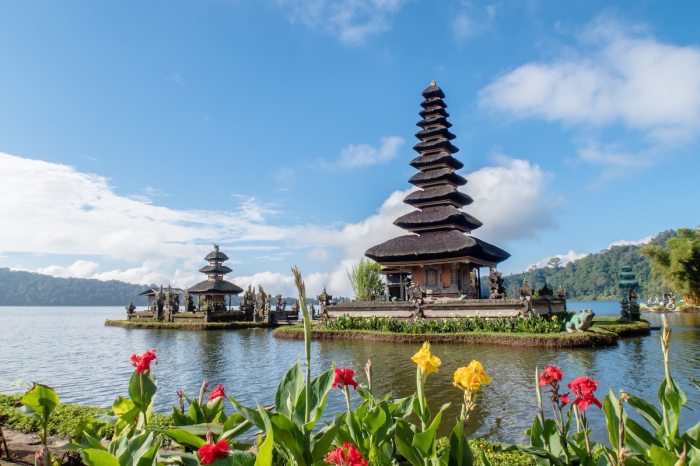
Bali’s rich history has shaped its unique cultural identity, influenced by various empires, religions, and colonial powers.The island’s earliest inhabitants were the Austronesian people, who arrived around 2,500 BC. Over the centuries, Bali came under the influence of Hindu kingdoms in Java and Sumatra, leading to the adoption of Hinduism and the development of Balinese architecture, dance, and music.
Pre-Colonial Era
* 7th century:The Sailendra dynasty from Java established a kingdom in Bali, introducing Mahayana Buddhism and building the Prambanan temple complex.
10th century
The Warmadewa dynasty emerged as the dominant power in Bali, marking the beginning of the classical Balinese period.
14th century
The Majapahit Empire of Java conquered Bali, bringing further Hindu-Javanese cultural influences.
Colonial Era
* 16th century:The Portuguese arrived in Bali, introducing Christianity and firearms.
17th century
Spending time in Bali is an enriching experience, offering breathtaking beaches, lush rice paddies, and vibrant cultural traditions. If you’re looking for a luxurious stay in Southeast Asia, consider exploring the singapore hotel scene. With world-class amenities and prime locations, these hotels provide an unforgettable retreat.
However, once you return to Bali, you’ll find yourself immersed once again in the island’s captivating charm, where time seems to slow down amidst its natural wonders.
The Dutch East India Company established a trading post in Bali, beginning a period of Dutch colonial rule.
Bali’s time is a treasure to be savored, with its idyllic beaches, lush rice paddies, and vibrant culture. If you’re seeking a memorable stay in the heart of Bandung, consider the Mercure Bandung Nexa Supratman. This elegant hotel offers a perfect blend of comfort and convenience, allowing you to fully immerse yourself in the beauty of Bali.
Return to the island’s tranquil pace and embrace the timeless allure that makes Bali a destination to cherish.
19th century
The Dutch gained control over the entire island, suppressing Balinese independence movements and introducing Western influences.
Post-Independence Era
* 1945:Indonesia gained independence from the Dutch, and Bali became a province of the new republic.
Traveling to Bali can be an enriching experience, but finding affordable accommodation can be a challenge. Consider reddoorz semarang for budget-friendly options. Their strategic locations make it easy to explore the island’s hidden gems. Immerse yourself in Bali’s vibrant culture and breathtaking landscapes, creating memories that will last a lifetime.
1960s
Tourism began to develop in Bali, transforming the island’s economy and cultural landscape.
1990s
Bali experienced a surge in tourism, leading to rapid economic growth and urbanization.
Impact of Colonialism, Independence, and Tourism
Colonialism brought Western influences to Bali, including Christianity, education, and infrastructure. However, it also suppressed Balinese culture and traditions. Independence allowed Bali to reclaim its cultural heritage and develop its own identity. Tourism has played a significant role in Bali’s economy, but it has also led to challenges such as environmental degradation and cultural commodification.
Time Management and Travel Planning
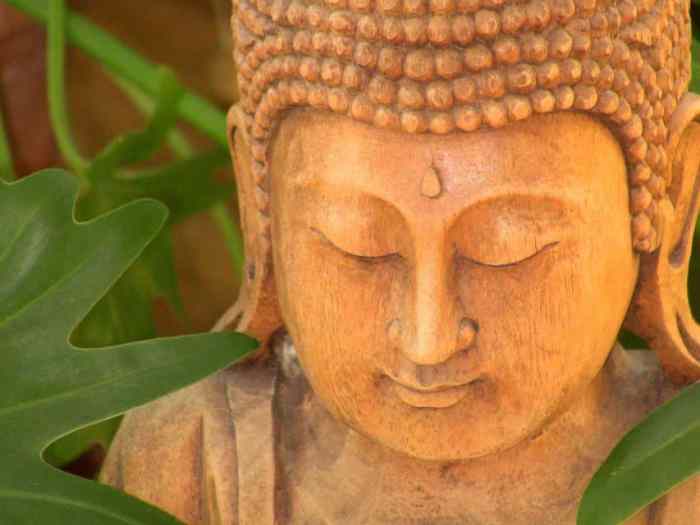
Traveling in Bali presents unique challenges to time management, influenced by factors such as heavy traffic, cultural customs, and activity schedules. This guide provides practical advice to optimize your time while exploring the island, considering these factors.
Best Times to Visit Bali
Bali’s seasons significantly impact the travel experience. The dry season (April-October) offers ideal weather for outdoor activities like surfing and sightseeing. The rainy season (November-March) brings heavy rainfall but also fewer crowds and lower prices. Consider your specific interests and budget when planning your trip.
Tips for Effective Time Management, Time in bali
- Plan a Flexible Itinerary:Allow for unexpected delays and adjust your schedule accordingly.
- Book Activities in Advance:Secure reservations for popular tours and activities, especially during peak season, to avoid disappointment.
- Utilize Technology:Use GPS navigation apps and online maps to optimize your routes and avoid traffic congestion.
- Respect Cultural Norms:Be mindful of local customs and ceremonies, as these may affect your travel plans.
- Allow Ample Time for Travel:Bali’s traffic can be unpredictable, so plan for additional time when traveling between destinations.
Time Perception and Cultural Immersion

In Balinese culture, time is perceived differently from Western perspectives. Balinese people tend to have a more fluid and relaxed approach to time, valuing the present moment and prioritizing social interactions over strict schedules.
Respecting local customs and schedules is crucial when visiting Bali. For instance, it’s considered polite to arrive slightly late for social gatherings as it shows respect for the host’s flexibility. Additionally, traditional ceremonies and rituals often follow specific timeframes that should be honored.
Time as a Social Construct
In Balinese society, time is often experienced and valued in relation to social events and relationships. Daily activities revolve around communal gatherings, ceremonies, and festivals, which take precedence over rigid timetables.
Time-Based Art and Traditions
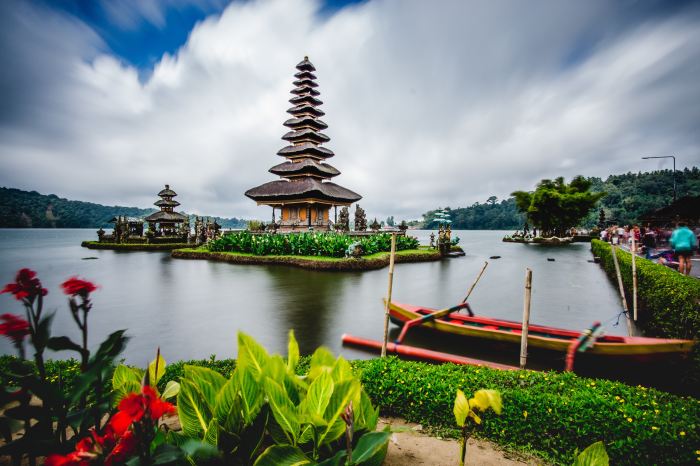
Bali’s rich cultural heritage is expressed through a myriad of art forms and traditions that are deeply rooted in time. These artistic expressions have been passed down through generations, embodying the island’s unique history, symbolism, and spiritual beliefs.
Shadow Puppetry
Wayang kulit, or shadow puppetry, is an ancient form of storytelling that has captivated audiences for centuries. Intricate leather puppets, meticulously carved with intricate designs, are manipulated behind a screen, casting mesmerizing shadows that bring mythical tales to life. The performance is accompanied by live music, creating a mesmerizing blend of visual and auditory artistry.
Dance Performances
Balinese dance is renowned for its grace, fluidity, and expressive storytelling. From the enchanting Legong to the dynamic Kecak, each dance form has its own unique history and symbolism. The dancers undergo rigorous training from a young age, mastering intricate movements and gestures that convey a range of emotions and narratives.
Temple Rituals
Time plays a crucial role in Balinese temple rituals. Elaborate ceremonies are held throughout the year, marking important religious festivals and life events. These rituals involve offerings, prayers, and performances, all meticulously timed according to the Balinese calendar. The temples themselves are living monuments, showcasing intricate architecture and carvings that depict stories from Hindu mythology.
Last Word
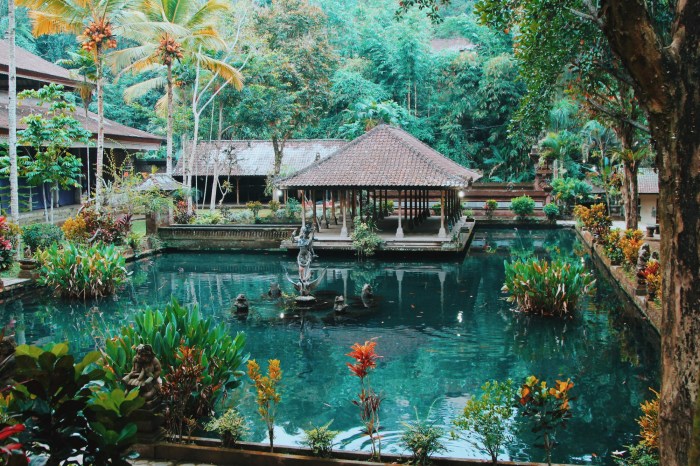
Time in Bali is a tapestry woven with ancient traditions, vibrant festivals, and a profound respect for the natural world. It is a place where time slows down, allowing visitors to immerse themselves in the present moment and experience the island’s unique rhythm of life.
Top FAQs
What is the best time to visit Bali?
The best time to visit Bali depends on your interests. For surfing and cultural immersion, the dry season (April-October) is ideal. For festivals and ceremonies, plan your trip around Nyepi (Balinese New Year) in March or April.
How should I manage my time while traveling in Bali?
Allow ample time for transportation, as traffic can be unpredictable. Prioritize activities that align with your interests and schedule in some downtime to relax and soak up the Balinese atmosphere.
What are some unique time-based experiences in Bali?
Attend a sunrise or sunset ritual at Tanah Lot Temple, witness a traditional Kecak dance performance, or participate in a Balinese cooking class to experience the island’s time-honored traditions.